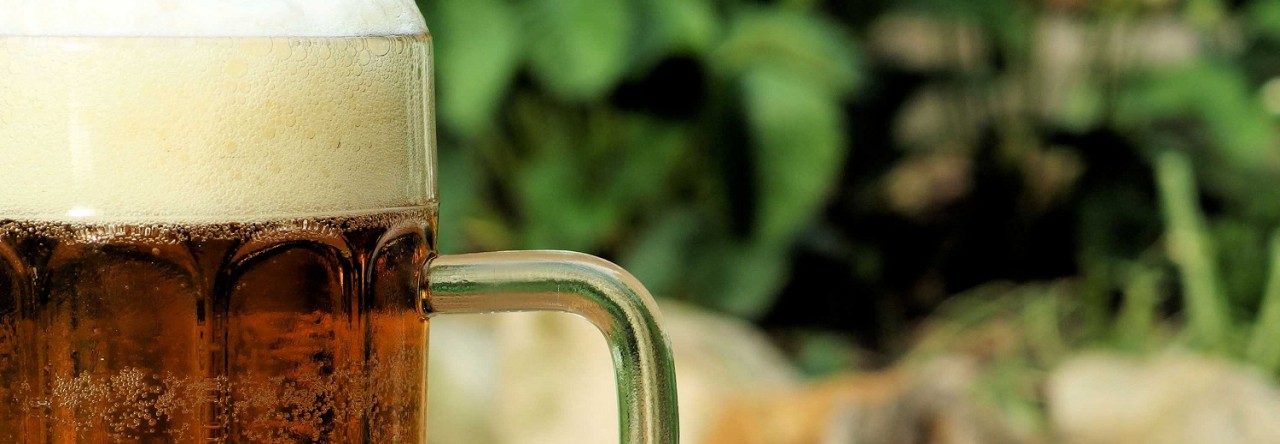I recently returned from a vacation in Maine. During that time I was seeking out local beer and come to some interesting comparisons between Maine Craft Brewing vs. my Home Brewing. I have been drinking Maine beer for the better part of 15 years or so. I think I have collected enough data to say that I think I brew better beer than most “mainstream” Maine breweries. I don’t know what it is about most Maine beer but there is a common hop profile in beers from Gritty’s, Shipyard, Geary’s, and Sebago that just sort of turns me off.
Sometimes it seems like they are brewing as if it’s still 1998. When hoppiness was defined by adding loads of harsh variety hops in at 60 minutes and that was it. There seems to be a lack of progression towards thinking about hop oils and late kettle additions.
I can honestly say after a week of drinking Maine beer I was really craving getting back to my kegerator to drink my homebrew. My homebrew seems much more satisfying flavor-wise than these Maine beers. I admit there are some new breweries in Maine that I haven’t really tried yet. And I didn’t spend all of my vacation sampling every brewery.
Next time I travel to Maine for a week, I’ll have to be sure to bottle up some of my own beer as a life raft midweek.
BREW ON!

Eric
So it’s not just me? We recently vacationed in Western Mass and I made a point to try as many local brews as I could find. Eventually I just got tired of the intense hoppiness of them all. When I buy an IPA, I expect it, but not from a lager. Eventually I just broke down and bought some Sam Adams to finish out the week.
AO
I agree. Brands like those mentioned, but also, harpoon, Wachusette, Berkshire, McNeil, Long Trail, etc, all need to look at current trends, and beers, and start making some modern west coast style pales, and ipas, or be left behind by the new wave.
AO
KISS Brew
You’ve definitely “made it” as a homebrewer when you can critique a brewery by preferring the beer you’ve made yourself. I’ve definitely been to some craft breweries where I would rather have mine. Of course, for everyone one brewery that can’t beat my homebrew, there plenty more breweries whose standards I can only aspire to meet.
Mike
I agree with both of you obviously. I can’t adequately put into words how these beers tasted. Neither the malt or the hops stood out, and they definitely were not harmonized together either. The beers just taste “old-school” or early craft beer attempts I guess. Its weird.
Thanks for the comments
Mike
Well said KISS brew.
Derek
There are defiantly breweries that try to play it safe still. I think in the brewing world there is the the new school vs the old school right now in my opinion. The old school doing very traditional things to beers kinda sounds like the one that you had, and the new school would be like dogfish, just out there going crazy with ideas. Maybe in the future there will be a hybrid type. But to me, I think that old guard is at a losing battle, they can’t compete with the prices of commercial beer and don’t want to be as creative as new breweries. So what’s there place?
Travis
Hi Mike, just stumbled on this. Two things: first, you’re not wrong about Gritty’s/Geary’s/Shipyard/Sea Dog/etc., but it’s probably not entirely the hops. The brewer from Shipyard, a British ex-pat, helped set up most of those Maine “microbrew” pioneers, and he set them up with Ringwood yeast, which is well-known for having high diacetyl, and most of them also specialized in English-style pale ales and porters (and held on to that style even after others changed around them – it’s not called New England for nothing). And second, before ditching all Maine beer, you might want to try Maine Beer Co for some exceptional hoppy beers, Allagash for world-class Belgian ales (beyond just the White, there’s sours, barrel-aged stuff, a good tripel, etc.), and I’d say Peak Organic has been killing it with their seasonals and session beers (Fall Summit, Summer Session, etc). I don’t live in Maine anymore, but all three of those are well-respected where I am (New York) and I’d be pretty happy to brew anything like that. Peak is a good example of a brewery that started with pretty unremarkable stuff, and subsequently has improved through experimenting with hops and other styles (without going all-out Dogfish Head…which, coincidentally, is a place in Maine).
bierfesten
Traditional craft beer is what I term “rent beer” so they can make seasonals.
Sam
Tried to become a home brewer a few months ago and due to problems with obtaining some supplies and my personal overzealous nature didn’t follow through. I am however, still following your blog as it keeps me motivated to try again some time. I did link you blog to my post. Hope you don’t ‘mind
Parkbrau
Travis is dead on, Ringwood is all over New England, you either love or hate it. I also agree that many of the New England beers are more traditional and what I refer to as brewpub beer.
Mike
@Travis I am well aware of the Alan Pugsley influence across many of Maines long standing breweries. Its too bad they all still run with that same method/process/ingredients from when they were “taught” by AP.
I would add that I don’t understand why the Maine Beer Co gets as much hype as it does. I find the flagship, Spring Peeper, to be awful. Their beers seem amaturish, dare I say ‘homebrewy’. And Peak beers always seem thin to me.
I am not making much of a case for Maine beer am I?